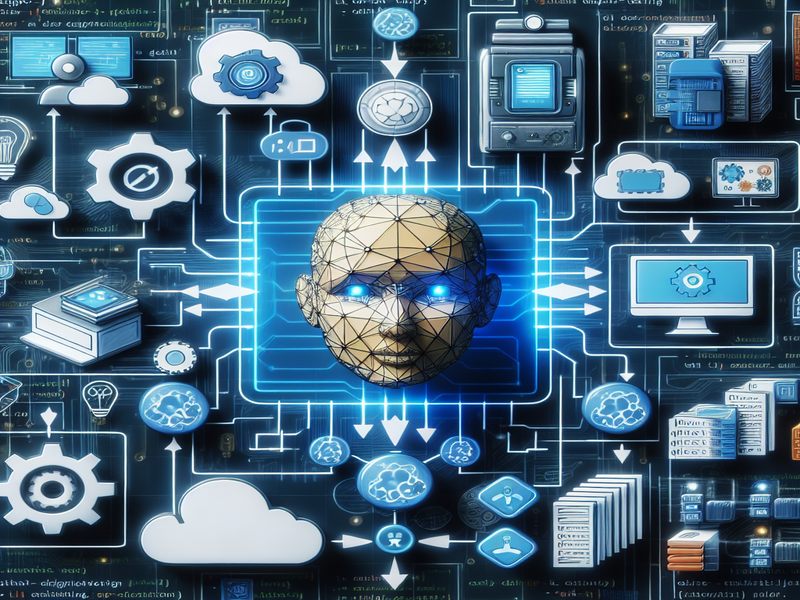- Updated: March 18, 2024
- 3 min read
AI in DevOps and the Benefits of Cloud Computing
Artificial Intelligence (AI) and DevOps are two major trends shaping the future of software development and operations. The intersection of these two powerful technologies is creating new opportunities for businesses to innovate, streamline processes, and deliver superior customer experiences. This article explores the importance of AI in DevOps and how cloud computing is revolutionizing software development.
Importance of AI in DevOps
AI is playing a crucial role in DevOps by automating routine tasks, predicting potential issues, and enhancing decision-making processes. By leveraging AI, organizations can reduce the time spent on manual tasks, improve operational efficiency, and accelerate the delivery of high-quality software.
AI-powered tools like UBOS’s Marketing AI Agent and Enterprise AI Platform are revolutionizing the way businesses handle software development and operations. These tools use AI to analyze data, identify patterns, and make predictions, helping teams to proactively address issues before they impact the user experience.
For instance, AI can be used to automate the testing process, reducing the risk of human error and speeding up the release cycle. It can also be used to monitor system performance in real-time, alerting teams to potential issues before they become critical. The OpenAI ChatGPT integration with UBOS, for example, allows developers to build AI-powered chatbots that can automate customer service and other business processes.
Benefits of Cloud Computing in Software Development
Cloud computing is another technology that’s having a profound impact on software development. By providing on-demand access to computing resources, cloud platforms like UBOS are enabling developers to build, test, and deploy applications more quickly and cost-effectively than ever before.
One of the main benefits of cloud computing is scalability. With the cloud, businesses can easily scale their operations up or down to meet demand, without having to invest in additional hardware or infrastructure. This flexibility can be particularly valuable for startups and small businesses, which may not have the resources to invest in expensive IT infrastructure.
Cloud computing also supports collaboration by allowing teams to work together remotely, in real time. This can be especially beneficial in a DevOps environment, where close collaboration between development and operations teams is critical to success.
Furthermore, cloud platforms like UBOS offer a range of tools and services that can help businesses optimize their software development processes. For example, the Workflow Automation Studio allows businesses to automate repetitive tasks, freeing up developers to focus on more strategic work.
Conclusion
In conclusion, AI and DevOps are transforming the way businesses develop and deliver software. By automating routine tasks, predicting potential issues, and enhancing decision-making processes, AI is helping businesses improve operational efficiency and deliver a superior user experience. Meanwhile, cloud computing is enabling businesses to scale their operations, collaborate more effectively, and optimize their software development processes.
Whether you’re a startup, a small business, or a large enterprise, leveraging these technologies can help you stay competitive in today’s fast-paced digital landscape. To learn more about how you can harness the power of AI and cloud computing, check out UBOS’s pricing plans and about us page.

 From vibe coding to vibe deployment. UBOS MCP turns ideas into infra with one message.
From vibe coding to vibe deployment. UBOS MCP turns ideas into infra with one message.